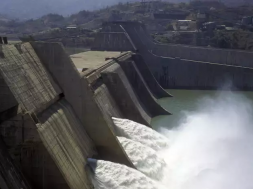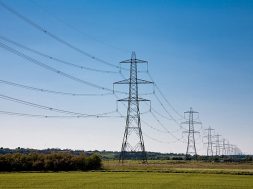
World Bank Boosts Support For The Financial Sustainability, Reliability, And Resilience Of Zambia’s Electricity Sector – EQ
In Short : The NEAT program will facilitate the implementation of the government’s recently launched Integrated Resource Plan and is underpinned by ZESCO’s and REA’s own multi-year strategic plans.
In Detail : LUSAKA : A new National Energy Advancement and Transformation Program (NEAT), a multiphase program supported by the World Bank, will help Zambia step up the financial sustainability, reliability, and resilience of its electricity sector by 2033.
The $700 million NEAT program will help Zambia’s national power utility, ZESCO, return to sustainability, attract new private sector investment at scale to enable new growth, and deliver more inclusive development across the national territory. In doing so, it will also help to enhance the energy sector’s climate resilience through diversification of the energy mix.
The first phase of the program, which runs from 2024 to 2026, will provide a $100 million grant to improve ZESCO’s financial performance and operational reliability, and strengthen electrification financing mechanisms supporting the Rural Electrification Authority (REA). It will also improve Zambia’s procurement process for non-hydropower renewable energy projects.
“This International Development Association* (IDA) grant represents an important step towards supporting Zambia to secure a sustainable and resilient energy future for its people. We are hopeful that by addressing the immediate financial challenges and laying the groundwork for a diversified energy portfolio, we are setting the stage for long-term economic growth,” said Achim Fock, World Bank Country Manager for Zambia.
“The deliberate focus on increasing renewable energy capacity by a substantial 1,458 megawatts demonstrates the World Bank’s commitment to supporting Zambia to diversify its energy sources and enhance climate resilience,” said Yadviga Semikolenova, World Bank Practice Manager for Energy in Eastern and Southern Africa.
The NEAT program demonstrates the World Bank’s commitment to supporting Zambia’s energy policies contained in the 8th National Development Plan (8NDP), Vision 2030, and National Energy Policy (NEP). The program also aligns with the World Bank’s goals of ending extreme poverty and boosting prosperity on a livable planet by enabling access to reliable and sustainable energy sources.
*The World Bank’s International Development Association (IDA), established in 1960, helps the world’s poorest countries by providing grants and low to zero-interest loans for projects and programs that boost economic growth, reduce poverty, and improve poor people’s lives. IDA is one of the largest sources of assistance for the world’s 74 poorest countries, 39 of which are in Africa. Resources from IDA bring positive change to the 1.3 billion people who live in IDA countries. Since 1960, IDA has provided $496 billion to 114 countries. Annual commitments have increased steadily and averaged about $34.7 billion over the last three years (FY20-FY22), with about 70 percent going to Africa.












